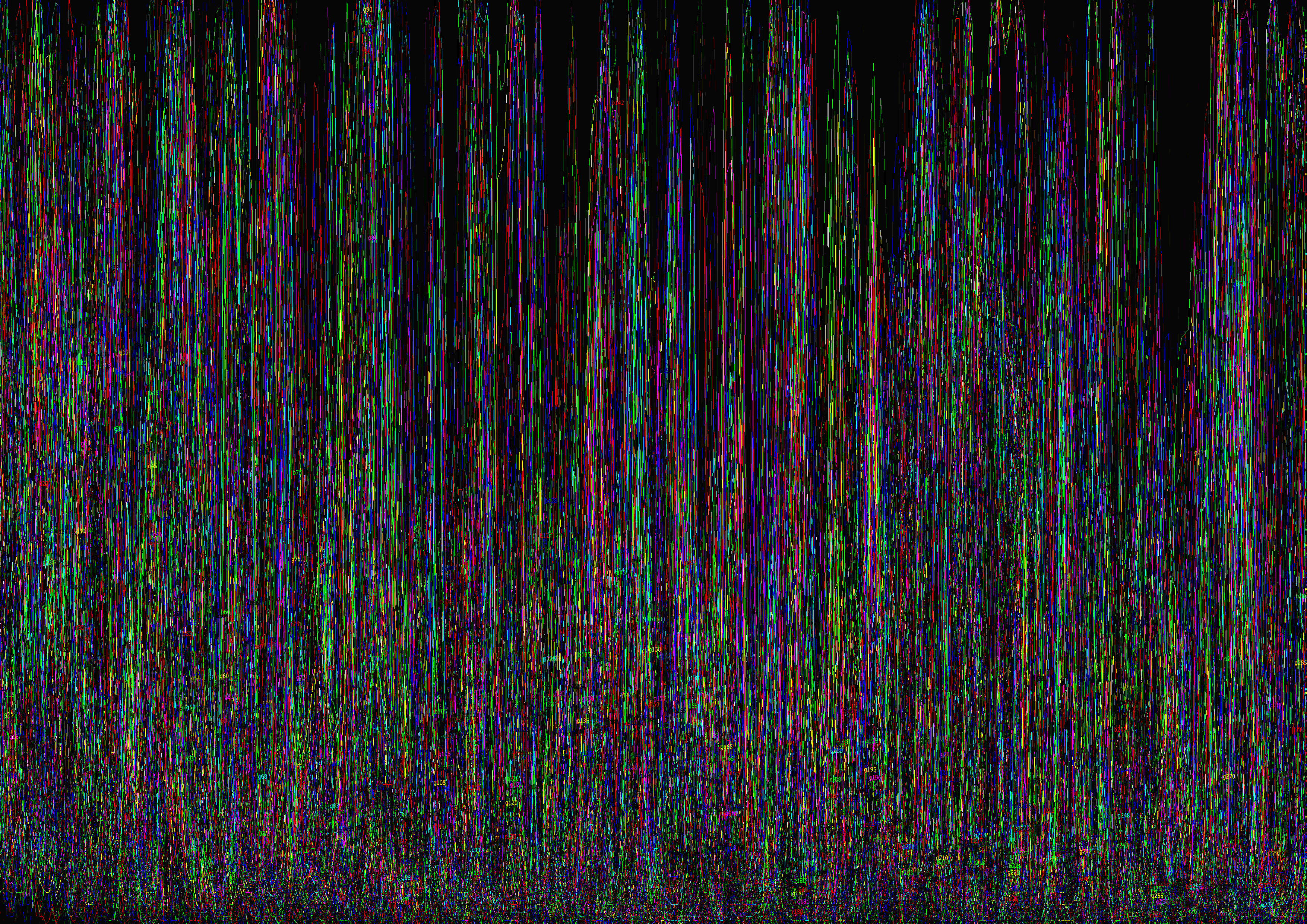from
complex
machine to flowing
stream
exhibition at wewater
cooperation w/xaver hirsch
Image Research
Water
Microscope
Aggregate States

fcmtfs(description)
oscillation. resonance. flow.
We are in the Anthropocene of complex machines and unnaturalness. In order to approach the concept of nature artistically, we begin with water, the source of all life, of everything natural. We examine water for its possible methods within the aggregate states, which we want to link to social issues, and compare the natural with the unnatural. We compare the natural with the unnatural by comparing the concepts of man-made technology and the associated programming languages and systems with those of the naturally organic. A non-linear re-transformation of things:
We are in search of the intangible, the gaseous.
We are searching for the factual, the stable.
We are searching for the morphic, the liquid.
The methodology of the transformation states of water in its aggregate states should serve us as a treatment chain for this. In order to reach new stages of a state, we have to use methods such as melting, freezing, boiling or condensing. The states themselves can only be transformed and changed by external changes. Looking at this leads us to the relationship between man and nature, which in this case we want to question critically and artistically on three levels. We want to place these relationships in relation to each other and ask ourselves questions about the origin and the will to act.

from
complex
machine to flowing
stream
exhibition at wewater
cooperation w/xaver hirsch

fcmtfs(description)
oscillation. resonance. flow.
We are in the Anthropocene of complex machines and unnaturalness. In order to approach the concept of nature artistically, we begin with water, the source of all life, of everything natural. We examine water for its possible methods within the aggregate states, which we want to link to social issues, and compare the natural with the unnatural. We compare the natural with the unnatural by comparing the concepts of man-made technology and the associated programming languages and systems with those of the naturally organic. A non-linear re-transformation of things:
We are in search of the intangible, the gaseous.
We are searching for the factual, the stable.
We are searching for the morphic, the liquid.
The methodology of the transformation states of water in its aggregate states should serve us as a treatment chain for this. In order to reach new stages of a state, we have to use methods such as melting, freezing, boiling or condensing. The states themselves can only be transformed and changed by external changes. Looking at this leads us to the relationship between man and nature, which in this case we want to question critically and artistically on three levels. We want to place these relationships in relation to each other and ask ourselves questions about the origin and the will to act.
© Tamara Knapp / All Rights reserved.